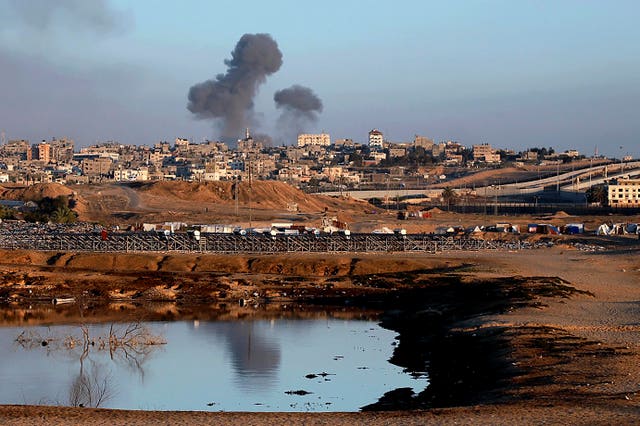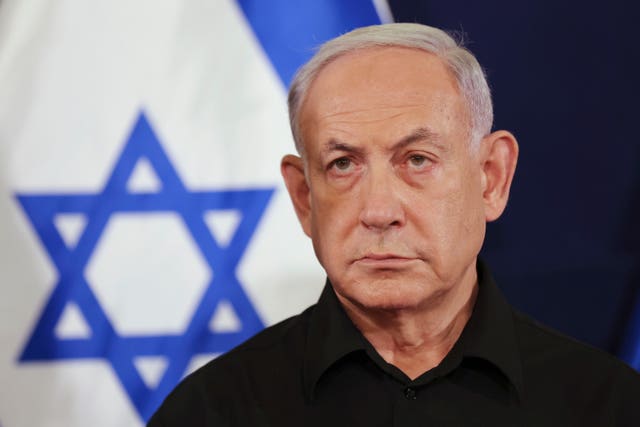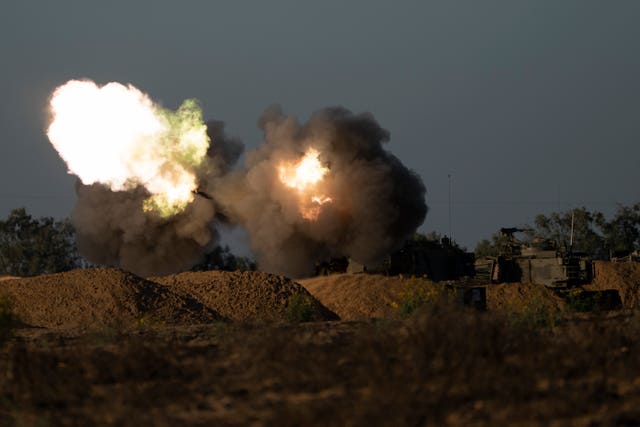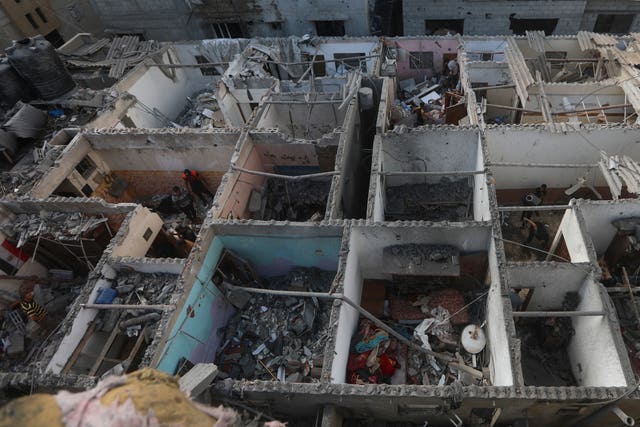Israeli troops seized control of Gaza’s vital Rafah border crossing on Tuesday in what the White House described as a limited operation, as fears mount of a full-scale invasion of the southern city and cease-fire talks with Hamas remain on a knife’s edge.
The UN warned of a potential collapse of the flow of aid to Palestinians from the closure of Rafah and the other main crossing into Gaza, Kerem Shalom, at a time when officials say northern Gaza is experiencing “full-blown famine”.
The move comes after hours of whiplash in the Israel-Hamas war, with the militant group on Monday saying it accepted an Egyptian-Qatari mediated ceasefire proposal.
Israel, meanwhile, insisted the deal did not meet its core demands.
The high-stakes diplomatic moves and military brinkmanship left a glimmer of hope alive but only barely — for a deal to bring at least a pause in the seven-month war, which has killed more than 34,700 Palestinians, according to local health officials, and has devastated the Gaza Strip.
By capturing Rafah, Israel gained full control over the entry and exit of people and goods for the first time since it withdrew soldiers and settlers from Gaza in 2005, though it has long maintained a blockade of the coastal enclave in co-operation with Egypt.
The incursion appeared to be short of the full-fledged offensive into Rafah that Israel has planned and might have been a pressure tactic in the ceasefire talks.

Israeli Prime Minister Benjamin Netanyahu called it an “important step” toward dismantling Hamas’ military and governing capabilities, and defence minister Yoav Gallant said Israel would “deepen” the Rafah operation if the talks on the hostage deal failed.
Osama Hamdan, a Hamas official based in Beirut, said the militant group would not respond to military pressure or threats and would not accept any “occupying force” at the Rafah crossing.
White House National Security Council spokesman John Kirby said the operation along the Gaza-Egypt border in eastern Rafah was not a full-on invasion of the city that President Joe Biden has repeatedly warned against on humanitarian grounds.

He said Israel had described it as “an operation of limited scale and duration” aimed at cutting off Hamas arms smuggling.
A senior Biden administration official said late on Tuesday that the US had paused a shipment of bombs to Israel last week over concerns that Israel was approaching a decision on launching a full-scale assault on Rafah against US wishes.
The US has historically provided Israel enormous amounts of military aid, which has only accelerated since Hamas’ October 7 attack that ignited the war.
The official said no final decision had been made yet on proceeding with the shipment later.
Mr Kirby also expressed optimism about the negotiations, saying Israel and Hamas “should be able to close the remaining gaps” to complete an agreement, without offering a timetable.
He said CIA chief William Burns will attend further talks in Cairo with representatives from Israel, Egypt and Qatar.
Hamas also sent a delegation to Cairo, which will meet separately with the Arab mediators.
“Everybody is coming to the table,” Kirby said.

Footage released by the Israeli military showed a tank entering the crossing. Details of the video matched known features of the crossing and showed Israeli flags flying from tanks that seized the area.
The Israeli military claimed it seized the crossing after receiving intelligence it was “being used for terrorist purposes”.
The military did not provide evidence to immediately support the assertion, though it alleged the area around the crossing had been used to launch a mortar attack that killed four Israeli troops and wounded others near the Kerem Shalom Crossing.
The military also said that ground troops and airstrikes targeted suspected Hamas positions in Rafah.
Wael Abu Omar, a spokesman for the Palestinian Crossings Authority, acknowledged Israeli forces had seized the crossing and had closed the facility for the time being.
He said strikes had targeted the area around the crossing since Monday.

An Egyptian Foreign Ministry spokesperson declined to immediately comment on the Israeli seizure.
Egypt previously has warned any seizure of Rafah could see Palestinians fleeing over the border, a scenario that could threaten a 1979 peace deal with Israel that’s been a cornerstone for regional security.
The offensive again raised the risks of an all-out Israeli assault on Rafah, a move the United States strongly opposes and that aid groups warn will be disastrous for some 1.4 million Palestinians taking refuge there.
Egyptian officials said the proposal called for a cease-fire of multiple stages starting with a limited hostage release and partial Israeli troop pullbacks within Gaza.
The two sides would also negotiate a “permanent calm” that would lead to a full hostage release and greater Israeli withdrawal out of the territory, they said.
Hamas sought clearer guarantees for its key demand of an end to the war and complete Israeli withdrawal in return for the release of all hostages, but it wasn’t clear if any changes were made.
Israeli leaders have repeatedly rejected that trade-off, vowing to keep up their campaign until Hamas is destroyed after its October 7 attack on Israel that triggered the war.




Why are you making commenting on The National only available to subscribers?
We know there are thousands of National readers who want to debate, argue and go back and forth in the comments section of our stories. We’ve got the most informed readers in Scotland, asking each other the big questions about the future of our country.
Unfortunately, though, these important debates are being spoiled by a vocal minority of trolls who aren’t really interested in the issues, try to derail the conversations, register under fake names, and post vile abuse.
So that’s why we’ve decided to make the ability to comment only available to our paying subscribers. That way, all the trolls who post abuse on our website will have to pay if they want to join the debate – and risk a permanent ban from the account that they subscribe with.
The conversation will go back to what it should be about – people who care passionately about the issues, but disagree constructively on what we should do about them. Let’s get that debate started!
Callum Baird, Editor of The National
Comments: Our rules
We want our comments to be a lively and valuable part of our community - a place where readers can debate and engage with the most important local issues. The ability to comment on our stories is a privilege, not a right, however, and that privilege may be withdrawn if it is abused or misused.
Please report any comments that break our rules.
Read the rules hereLast Updated:
Report this comment Cancel